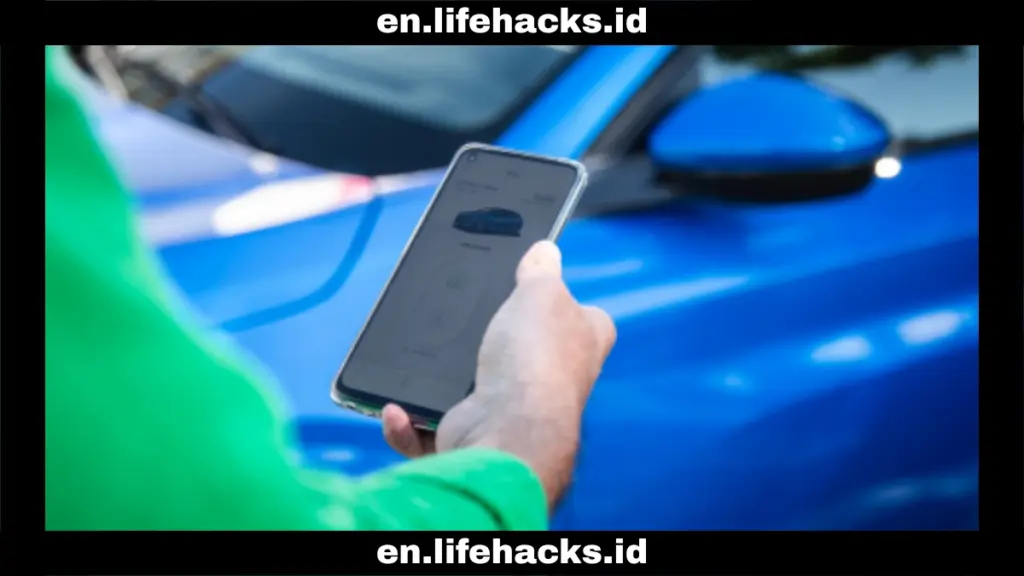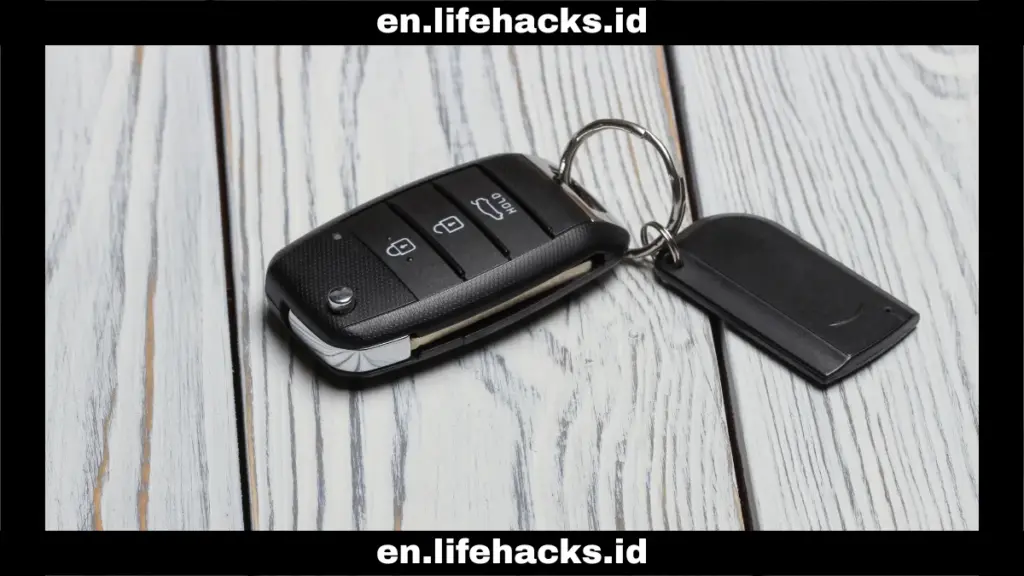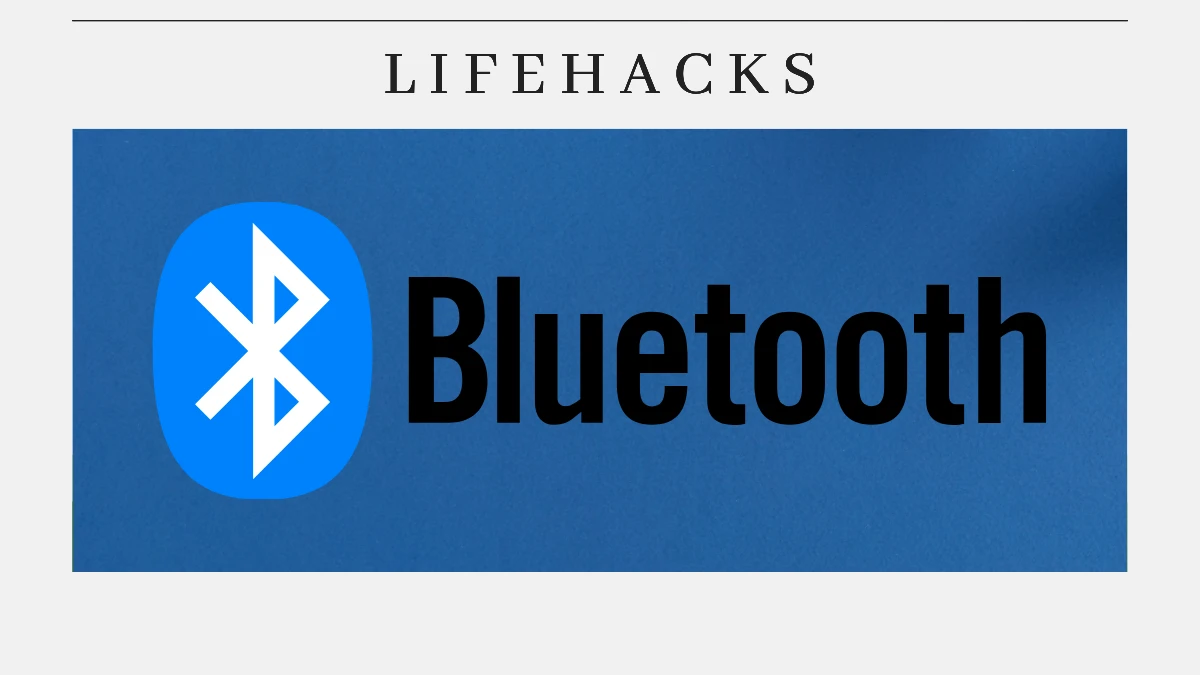Smartphones have become an indispensable tool for humans. They serve as wallets, maps, cameras, and connections to the world. Have you ever imagined smartphone as car key?
It turns out that smartphone as car key is not just a fantasy. This innovation has been developed and even exists already. This has led car manufacturers to explore ways to turn this most frequently used device into the future of immobilizers.
This article will answer questions related to smartphone as car key. Not only that, we will also provide information on how they work, their benefits, and their prospects for the future.
How Does it Work?

Smartphone as car key use Near Field Communication (NFC) or Ultra-Wideband (UWB) wireless technology integrated with a digital key app. This technology uses encryption to ensure that only authorized users can access the car.
There are differences in the use of wireless digital key technology. Here are the differences:
- NFC: To unlock and start the car, the phone will send encrypted data via NFC. This is done by placing the phone near the car’s sensor reader, such as on the door handle or center console.
- UWB: To unlock or start the car, UWB-enabled vehicles will detect the phone from a distance. When a compatible phone approaches from a distance of about 30 meters, it will automatically unlock the car. After that, you can start the engine without placing it in a specific area.
The Benefits of a Smartphone as Car Key
Smartphones as digital keys offer many benefits, ranging from practicality, increased security, ease of access, and integration between technologies. Here are some of the benefits.
No need to carry car keys anymore

One common mistake when using an immobilizer is that car keys are often easily lost, making them difficult to find when needed. Using a smartphone as a car key makes it easier for users to no longer have to carry physical car keys.
Meanwhile, smartphones are items that you almost always carry with you everywhere you go. This minimizes the possibility of misplacing or forgetting them. Their use is also more practical and convenient for opening doors and starting cars.
Automatic access
Digital keys that use UWB wireless technology provide automatic access. The car can detect the presence of a compatible smartphone when it is nearby, so the car doors can open automatically.
When you walk away, it will automatically lock again without you having to press any buttons. This automatic access gives the car a futuristic feel and makes you feel modern.
Difficult to lose or steal
Its small size not only makes car keys easy to misplace, but also easy to lose and steal. Smartphone as car key have less potential to be lost or stolen.
Even if a smartphone is lost, the digital key inside is protected by a screen lock, PIN, or biometric authentication, making it difficult to access. This is in contrast to physical car keys, which can be used immediately by someone else if lost.
Easy access sharing

You often don’t use your car alone; family members or friends sometimes like to borrow it. So what if that happens? Do you have to give your smartphone to the person who wants to borrow the car?
The answer is definitely no. Your digital key provides convenience, including in sharing vehicle access. You can easily and securely share your digital key with others through the app. So, there’s no need to meet in person just to give them a physical key.
Ease of integration with the latest technology
Smartphone as car key provide ease of integration with the latest technology. With a constantly evolving digital ecosystem, smartphones can easily adapt. Adding new features and improving security usually only requires updating the software on your smartphone.
Challenges and Future Prospects

Smartphone as car key come with challenges. There are still many things to consider with this technology. Here are the main challenges:
- Cybersecurity: This is the biggest threat, with the potential for hacking and data theft.
- Dependence on smartphones: If the phone battery dies or the phone is damaged, users will have difficulty accessing their cars.
- Compatibility and standardization: Not all car and smartphone manufacturers support the same technology.
- Connectivity issues: Wireless connection problems in certain areas can interfere with the key’s functionality.
Despite these challenges, this technology will continue to evolve and has a promising future. Here are some possible prospects:
- Improved security
- Industry standardization
- Enhanced functionality
- Integration with autonomous vehicles
- Improved user experience
That is how the smartphone as a car key works as the future of immobilizers. Its automation-supporting functionality, numerous benefits, and prospects promise this technology to be the ideal choice for car users in the future.
Table of Contents


